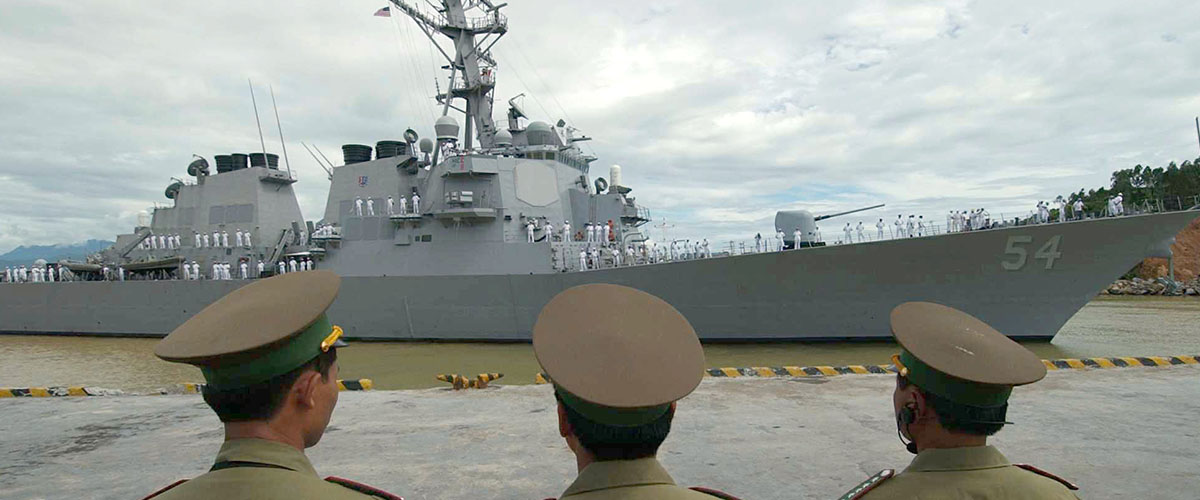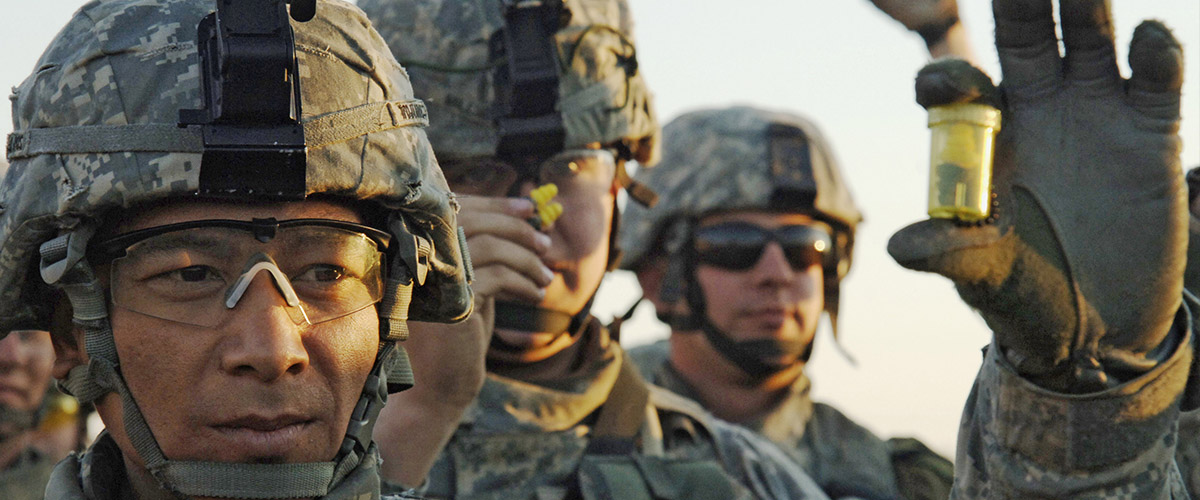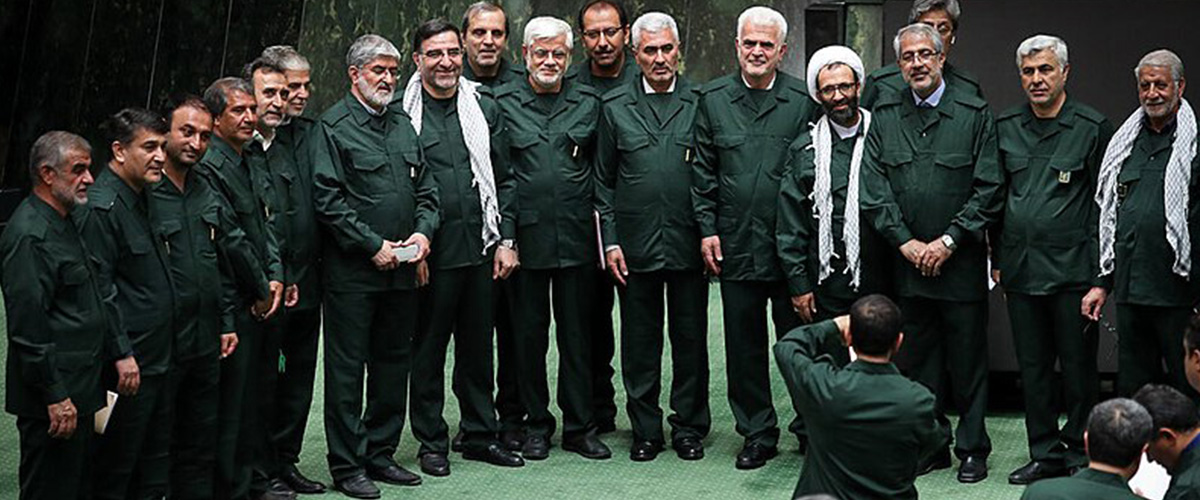
High Court Rules Blue Water Veterans’ Case No Longer Necessary
For decades, Navy veterans who served on open sea ships off the shore of Vietnam have been blocked from the same Veterans Affairs benefits given to those who served in the war on land or inland waterways. The government long argued that there wasn’t enough evidence to link poisonous defoliants like agent orange to diseases in veterans who never set foot on land.
However, the Justice Department has decided not to continue blocking blue water Navy veterans from benefits. Those actions led the U.S. Supreme Court to rule that it no longer needed to consider a previously granted case over the benefits for open-water Navy veterans exposed to toxic chemicals during the Vietnam War.
H.R. 299: Blue Water Navy Vietnam Veterans Act of 2019
House Resolution 299 was a bipartisan effort that passed Congress on June 14 and is headed to the desk of President Donald Trump. The bill serves to clarify presumptions relating to the exposure of certain veterans, specifically, veterans who served offshore in the vicinity of the Republic of Vietnam.
The bill establishes a presumption of service connections related to diseases in offshore servicemembers from the Vietnam War era. Veterans who served offshore between January 9, 1962, and May 7, 1975, will now be considered to have incurred certain diseases as a result of their military service. This bill covers veterans in both the Navy and Air Force who served offshore.
H.R. 299 entitles open water veterans to receive VA benefits for the following diseases:
- Chronic B-cell Leukemias
- Chloracne
- Diabetes Mellitus Type 2
- Hodgkin’s disease
- Multiple Myeloma
- Non-Hodgkin’s Lymphoma
- Porphyria Cutanea Tarda
- Respiratory Cancers
- Soft Tissues Sarcomas
- Prostate cancer
- Bladder cancer
- Hypothyroidism
- Hypertension
- Stroke
- Early-onset peripheral neuropathy
- AL amyloidosis
- Ischemic heart disease
- Parkinson’s disease
What is a Blue Water Veteran?
Blue water veterans are U.S. military veterans who served on open sea ships off the shore of Vietnam during the Vietnam War. The U.S. Department of Veterans Affairs has long held that these veterans weren’t entitled to certain benefits given to veterans who did not set foot on land or aboard ships that operated on the inland waterways.
Navy vets exposed to agent orange while serving in the open waters of Vietnam have long fought for benefits other veterans of the war have received. For decades, the VA required blue water vets to show on a “factual basis” that they were exposed to herbicides during their military service. But the VA also held that there was no science to back up the claims that these vets were exposed to agent orange. As a result, instead of receiving the presumption of exposure to toxic chemicals afforded to other veterans, disability compensation for blue water veterans was decided on a case-by-case basis.
How were blue water vets exposed to chemicals?
Like brown water Navy personnel, blue water vets were likely exposed to several chemicals needed to operate and maintain their ships. Additionally, exposure can occur by ingestion, inhalation, dermal contact or a combination of these routes. Exposure varied greatly by a sailor’s occupation, the class of the ship and the nature of the activity.
In addition to exposure to toxic chemicals found on ships, there is a significant chance that military members on the seas were exposed to agent orange. It’s estimated that at least 13% of agent orange drifted through the atmosphere. Further, there is evidence that blue water veterans were exposed to the highly toxic chemical in Agent Orange through the distilled water they used aboard ships to drink, bathe and cook with.
Why were blue water veterans excluded from presumptive benefits?
Officials from the VA cited a lack of sufficient evidence to prove a presumptive link between off coast service and illnesses related to Agent Orange. Presumptive benefits come with a requirement to present evidence that such a need is warranted. While existing studies backed up claims that veterans who served on land or aboard inland waterway vessels suffered from certain illnesses, there was nothing to back up claims from blue water navy veterans presenting with those illnesses.
Procopio v. Wilkie
Alfred Procopio is a blue water Navy veteran who served off the coast of Vietnam from November 1964 to July 1967. In the mid-2000s, he was denied entitlement to service connection for prostate cancer and diabetes mellitus related to his Agent Orange exposure. Procopio appealed the VA’s denial arguing that the agency owed him benefits because of his service on the USS Intrepid.
Procopio’s case took aim at the controversial Haas v. Peake ruling, which excluded blue water Navy veterans from the presumption of exposure to herbicides during the Vietnam War.
We are Veterans Helping Veterans
The Veteran Legal Assistance Program is here to support veterans and active duty soldiers. In addition to offering valuable information, we are here to amplify the voices of Veterans and their families. If you are in need of assistance, contact the Veterans Legal Assistance Program and let us know how we can help.
We’ve got your six.



